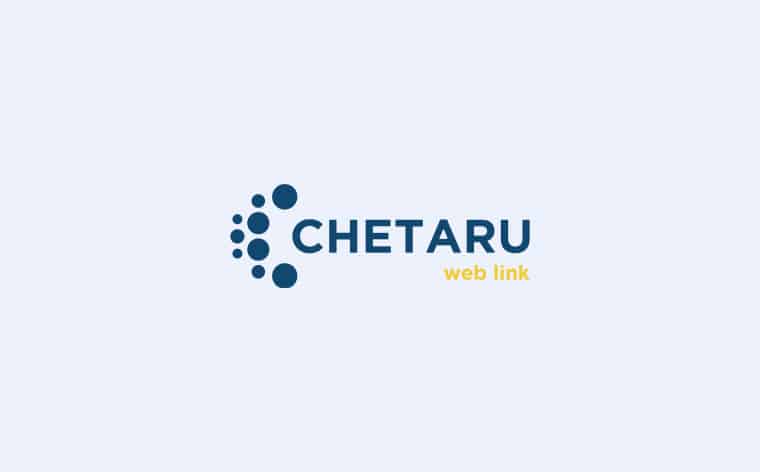Empower Your Agency: Leveraging White Label Websites for Success
30 Dec 2024 | 9 min read
The Power of White Label Websites
In the world of agency business, white-label websites have emerged as a powerful tool for success. Understanding the concept of white labeling and recognizing the importance of white-label websites is essential for agency owners and decision-makers.
Understanding White Labeling
White labeling refers to rebranding and reselling products or services created by one company as if they were the original creations of another company. It allows agencies to offer a wide range of services without investing time and resources into developing those services from scratch. By leveraging white labeling, agencies can focus on their core competencies and deliver high-quality solutions to their clients.
To gain a deeper understanding of white labeling, check out our article on what is white labeling.
Why White Label Websites Matter for Agencies
White-label websites play a crucial role in the success of agencies. Here are a few reasons why they matter:
- Time and Cost Savings: Developing websites from scratch can be time-consuming and resource-intensive. With white-label websites, agencies can skip the development process and get fully functional websites quickly. This saves time and money, allowing agencies to allocate their resources more efficiently.
- Increased Efficiency and Scalability: White-label websites enable agencies to take on more clients and projects without sacrificing quality. By partnering with a white-label provider, agencies can scale their operations and handle a higher volume of work, ultimately increasing their revenue potential.
- Access to Expertise and Specialized Skills: White-label website providers often have teams of experienced professionals specializing in web design and development. By collaborating with these experts, agencies can tap into their knowledge and skills to deliver top-notch websites to their clients. This allows agencies to offer a wider range of services without hiring additional in-house resources.
To explore the benefits of white-label websites in more detail, continue reading our article on white label websites.
By harnessing the power of white-label websites, agencies can streamline their operations, enhance client satisfaction, and expand their service offerings. The next section will delve into specific strategies for successfully leveraging white-label websites.
Benefits of White Label Websites
White-label websites offer numerous benefits for agencies looking to streamline their operations and offer high-quality services to their clients. Let’s explore some key advantages of incorporating white-label websites into your agency’s workflow.
Time and Cost Savings
One of the primary benefits of white-label websites is the significant time and cost savings they provide. Building websites from scratch can be lengthy and resource-intensive, requiring a team of skilled developers and designers. By outsourcing website development to a white-label provider, agencies can leverage the expertise of professionals who specialize in web development. This frees up precious time and resources that can be redirected toward other crucial aspects of your agency’s operations, such as client acquisition and relationship management.
Furthermore, white-label providers often offer competitive pricing models that allow agencies to save costs compared to hiring an in-house team. This cost-effectiveness is particularly beneficial for smaller agencies or those looking to expand their service offerings without incurring substantial overhead expenses.
Increased Efficiency and Scalability
White-label websites can significantly increase efficiency and scalability for agencies. With white-label providers handling the website development process, agencies can take on more projects simultaneously and meet client demands more efficiently. This scalability empowers agencies to grow their client base and expand their service offerings without being limited by internal resources.
Moreover, white-label providers often have streamlined processes and workflows, allowing faster turnaround times and efficient project management. This means agencies can deliver high-quality websites to their clients within shorter timeframes, enhancing overall client satisfaction and retention.
Access to Expertise and Specialized Skills
Collaborating with a white-label website provider grants agencies access to a pool of expertise and specialized skills. White-label providers are dedicated professionals focusing solely on web development, design, and related services. They stay up-to-date with the latest industry trends, technologies, and best practices, ensuring that the websites they deliver are of the highest quality.
By partnering with a white-label provider, agencies can strike into this expertise and leverage the specialized skills of professionals with in-depth web development knowledge and experience. This collaboration allows agencies to offer their clients cutting-edge websites tailored to their needs and requirements.
In summary, white-label websites offer agencies significant advantages, including time and cost savings, increased efficiency and scalability, and access to expertise and specialized skills. By incorporating white-label websites into their workflow, agencies can enhance their service offerings, improve client satisfaction, and position themselves for long-term success.
Leveraging White Label Websites for Success
When it comes to an agency’s success, leveraging white-label websites can be a game-changer. White-label websites offer a range of benefits that can streamline project management, improve client satisfaction, and even expand service offerings.
Streamlined Project Management
White-label websites can significantly streamline project management for agencies. Agencies can offload time-consuming website development and design tasks by partnering with a reputable white-label website provider. This allows the agency to focus on core competencies and client relationships.
With a white-label website provider handling the technical aspects of website creation, agencies can save time and effort. The provider handles website coding, testing, and ongoing maintenance tasks. This streamlines the project management process, ensuring that websites are delivered on time and within budget.
Improved Client Satisfaction
White-label websites can lead to improved client satisfaction. With a trusted white-label website provider, agencies can deliver high-quality websites to their clients. These websites are often professionally designed, optimized for performance, and mobile-friendly.
Agencies can enhance their reputation and build client trust by offering top-notch websites. The websites can be customized to meet each client’s unique needs, ensuring their vision and branding are accurately reflected. This level of customization and attention to detail can significantly enhance client satisfaction.
Expanding Service Offerings
White-label websites also allow agencies to expand their service offerings. Agencies can offer website development and design services by partnering with a white-label website provider without investing in an in-house team. This allows agencies to tap into a new revenue stream and cater to the growing website demand.
With white-label websites, agencies can provide clients with comprehensive digital solutions. This includes not only website development and design but also services like website maintenance, hosting, and ongoing support. By expanding their service offerings, agencies can position themselves as a one-stop shop for all their clients’ digital needs.
By leveraging white-label websites, agencies can streamline project management, enhance client satisfaction, and diversify their service offerings. However, it’s important for agencies to carefully consider the quality and customization options offered by white-label website providers. Compatibility with the agency’s workflow and effective support and communication are also crucial factors. With the right white-label website partner, agencies can unlock new opportunities for success in the digital landscape.
Considerations for Choosing a White Label Website Provider
When selecting a white-label website provider for your agency, there are several important considerations to remember. These factors will help you choose a provider that aligns with your agency’s needs and goals. Here are three key considerations to take into account:
Quality and Customization Options
One of the primary considerations when choosing a white-label website provider is the quality of their work and the customization options they offer. Look for a provider that delivers high-quality websites that meet industry standards and best practices. The websites should be visually appealing, user-friendly, and responsive across different devices.
Additionally, the provider should offer sufficient customization options to meet the unique requirements of your clients. This includes incorporating branding elements, such as logos, color schemes, and fonts, to ensure the websites align with your agency’s and clients’ brand identities. The level of customization should allow you to create websites that feel tailor-made for each client.
Compatibility with Agency Workflow
It is crucial to choose a white-label website provider that is compatible with your agency’s workflow. The provider should seamlessly integrate with your existing processes and tools to ensure a streamlined workflow. This includes compatibility with project management systems, communication platforms, and collaboration tools that your agency relies on.
Consider the ease of communication and collaboration with the provider. Look for providers that offer clear lines of communication, responsive support, and regular updates on project progress. This will help you maintain a smooth and efficient workflow, allowing you to promptly deliver websites to your clients.
Support and Communication
The level of support and communication provided by the white-label website provider is crucial for a successful partnership. Ensure that the provider offers reliable support channels, such as email, phone, or live chat, to address any queries or concerns arising during development. Prompt and effective support is essential to ensure your agency can provide timely assistance to your clients.
Additionally, transparent and open communication is key to maintaining a strong working relationship. The provider should be responsive to your inquiries, provide regular updates, and proactively address any issues or challenges. Effective communication will foster trust and enable you to deliver exceptional service to your clients.
By considering these factors—quality and customization options, compatibility with agency workflow, and support and communication—you can make an informed decision when choosing a white-label website provider. This will enable your agency to deliver high-quality, customized websites to your clients, creating a successful and productive partnership.
Making the Most of White-Label Websites
To fully leverage the benefits of white-label websites, agencies should focus on three key aspects: effective communication with clients, building their agency’s brand, and ensuring quality control.
Effective Communication with Clients
Maintaining open and clear communication with clients is crucial for the success of any agency. When utilizing white-label websites, it’s essential to keep clients informed about the process and progress of their projects. Regular updates, timely responses to inquiries, and transparent discussions about timelines and deliverables can help build trust and ensure client satisfaction.
By setting clear expectations and providing regular feedback, agencies can ensure clients are involved and engaged throughout the website development process. Communication tools like project management systems, email, and video conferences can facilitate seamless collaboration between agencies and clients.
Building Your Agency’s Brand
While white-label websites allow agencies to outsource website development, it is important to maintain and strengthen their own brand identity. Agencies should focus on incorporating their brand elements, such as logos, color schemes, and messaging, into the websites they deliver to clients. This ensures consistency and reinforces the agency’s brand image.
By showcasing a portfolio of high-quality websites developed under their brand, agencies can attract potential clients and demonstrate their website design and development expertise. Additionally, agencies can offer additional services such as branding, content creation, and digital marketing to further enhance their value proposition.
Ensuring Quality Control
Maintaining quality control is vital when white-labeling websites. Agencies should establish rigorous quality assurance processes to ensure the websites they deliver are of the highest standard. This includes thorough functionality, responsiveness, and compatibility testing across different browsers and devices.
Agencies can create a checklist or use project management tools to streamline the quality control process to track and monitor each website development stage. Regular audits and reviews can help identify and address potential issues or improvement areas.
By consistently delivering high-quality websites, agencies can enhance their reputation and build long-term client relationships. This, in turn, can lead to increased referrals and business growth.
Remember to visit our article on white label web design for more details on how agencies can effectively leverage white-label websites to expand their services and achieve success. By prioritizing effective communication, maintaining their brand identity, and ensuring stringent quality control, agencies can maximize the benefits of white-label websites and take their business to new heights.
